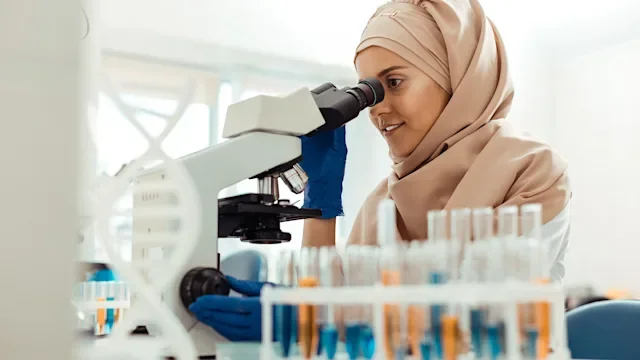Key takeaways:
Although rare, your immune system can make antibodies that worsen an infection instead of neutralizing it. This is called antibody-dependent enhancement (ADE).
In very rare cases, certain vaccines have been found to cause ADE. These vaccines are either unavailable or restricted to certain people with lower risk.
There’s no evidence that the COVID-19 vaccines cause ADE. People who are vaccinated have a much lower risk of ending up in the hospital or dying from COVID-19.
Your immune system plays an important role in protecting you from different infections. When your body encounters a foreign intruder (like a virus), your immune system helps fight it. Part of this process teaches your immune system how to fight it more quickly in the future.
Sometimes, the immune response that’s meant to protect you can make you sicker if you’re exposed to the germ again. This is called antibody-dependent enhancement (ADE). Although ADE is rare, some people wonder whether it’s possible with the COVID-19 vaccines.
In this article we’ll cover what you should know about ADE and if it’s possible with the COVID-19 vaccines.
Search and compare options
What is antibody-dependent enhancement (ADE)?
When you’re exposed to a virus, two types of immune responses occur. Your innate immune response is your body’s initial and fast-acting reaction to a germ. Your adaptive immune response is your body’s second line of defense. It creates a more specific response to fight off the intruder.
Your body’s adaptive immune system creates long-lasting cells that make antibodies. Antibodies can recognize specific proteins that are unique to a virus (called antigens). This helps them quickly recognize and respond to the virus if you’re exposed to it again, helping to prevent a potential infection.
Antibodies are usually helpful in preventing viruses from infecting your cells. But sometimes they can worsen an infection — this is called ADE. ADE happens when your body makes antibodies against a virus that don’t neutralize it. Instead, these antibodies inadvertently worsen the infection.
Research suggests ADE can worsen infections in two different ways:
1) Antibodies can help the virus infect cells and multiply, which causes a more severe infection.
2) Antibodies can react with viral antigens inside your body, which causes inflammation in infected organs (e.g., the lungs). Too much inflammation can cause damage in the body.
In either case, the infection becomes worse due to an unintended response from your immune system. Rather than fighting off an infection, you get even sicker.
Can vaccines cause ADE?
Vaccines prevent infections and serious illness by imitating an infection. This triggers an adaptive immune response in your body. After vaccination, your body makes cells that create antibodies to protect you from infection in the future.
In some rare cases, a vaccine may cause your body to make antibodies that don’t neutralize the virus, leading to ADE. As described above, these antibodies can help the virus multiply or cause inflammation to make you even sicker.
This has been observed in a few cases. As a result, the clinical trials had to be stopped, or the vaccine was withdrawn from the market. Below are a few examples of ADE.
Respiratory syncytial virus vaccine
Respiratory syncytial virus (RSV) is a common virus that infects the respiratory tract. It generally leads to mild cold-like symptoms. However, some people may be at higher risk for RSV complications. This includes infants who are born prematurely or with heart or lung disease.
An RSV vaccine study from the 1960s showed that the RSV vaccine being studied failed to prevent RSV infection. Instead, it caused infections to become worse. In fact, 80% of children who got infected after receiving the RSV vaccine had to be hospitalized. This is compared to 5% of children with RSV who didn’t get the vaccine.
Research suggests that antibodies the vaccine created were binding to RSV antigens in the lungs. This resulted in worsening inflammation. The clinical trial was stopped due to these safety concerns.
Currently, there’s no FDA-approved vaccine for RSV. Instead, it’s recommended that certain young children with high risk take preventative medications. This includes a monthly injection called palivizumab (Synagis) during the months when RSV is most prevalent.
Inactivated measles vaccine
Measles is a highly contagious virus that can lead to serious complications. These include pneumonia, encephalitis (swelling of the brain), and death.
Children in the 1960s were vaccinated with an early form of the vaccine, which contained inactivated (killed) measles. But vaccinated children who got infected developed an atypical form of measles. This was characterized by a distinctive rash and severe pneumonia.
Like the RSV vaccine, this was thought to be due to antibodies binding to measles antigens. This resulted in worsening inflammation. Due to these concerns, the vaccine was withdrawn from the U.S. market in 1967.
Fortunately, scientists developed another form of the measles vaccine. Instead of an inactivated virus, it contained a weakened live virus, which doesn’t cause ADE. This form of the vaccine led to the elimination of measles in the U.S.
Today, the measles vaccine is often given in combination with the mumps and rubella vaccines (called MMR).
Dengue vaccine
Dengue is an infection caused by one of four related viruses. People are exposed to the virus when an infected mosquito bites them. Dengue causes fever, rash, and aches and pains. It can be life-threatening in severe cases.
Scientists developed a dengue vaccine to protect against all four dengue viruses. But it was linked to severe cases of dengue fever. This occurred in children without a history of previous dengue virus infection who became infected after vaccination.
This may have been due to non-neutralizing antibodies from the vaccine. These antibodies helped the virus to multiply more easily in certain immune cells.
The dengue vaccine (Dengvaxia) is FDA approved for children ages 9 to 16 years old who’ve already had a confirmed dengue virus infection. They also need to be living in an area where dengue is common. This limited application is because prior infection lowers the risk of ADE with the vaccine.
Do the COVID-19 vaccines cause ADE?
Research has been done to determine if COVID-19 vaccines can cause ADE. Fortunately, there’s no evidence showing that to be the case.
Scientists first used animal studies to analyze the safety of the COVID-19 vaccine. This is because the research required intentional exposure to the virus. In these animal studies, the COVID-19 vaccine didn’t show ADE issues — such as lung inflammation — that we saw with the early measles and RSV vaccines.
Now that the vaccine has been developed, we can use real-world data to study the safety of the vaccine. And here’s the good news: Data on humans hasn’t shown that the COVID-19 vaccines cause ADE or worsen an infection. In fact, they’ve been very effective against serious illness, hospitalization, and death from COVID-19.
For example, one study compared COVID-19 infections and hospitalizations among vaccinated and unvaccinated people in Los Angeles. The study found that infection rates among unvaccinated people were 5 times the rates seen in vaccinated people. And hospitalization rates among unvaccinated people were 29 times the rates in vaccinated people.
It’s true that some people may develop COVID-19 after being vaccinated (called breakthrough infections). But breakthrough infection symptoms tend to be less severe if you end up getting sick. Luckily, we haven’t observed cases of ADE with the COVID-19 vaccines.
The bottom line
ADE occurs when your immune system makes antibodies that worsen an infection. This can happen if antibodies help the virus to enter your cells and multiply more easily. ADE can also worsen infections by causing more inflammation in the infected organs (e.g., the lungs).
Some vaccines, like the inactivated measles vaccine, were found to cause ADE. These vaccines are no longer available in the U.S., or they’re only used in certain people with lower risk. Fortunately, the majority of vaccines don’t cause ADE.
Likewise, there’s no evidence suggesting that the COVID-19 vaccines cause ADE. Research continues to show that the COVID-19 vaccines are safe and effective against COVID-19.

Why trust our experts?



References
American Academy of Pediatrics. (2014). Updated guidance for palivizumab prophylaxis among infants and young children at increased risk of hospitalization for respiratory syncytial virus infection. Pediatrics.
American Academy of Pediatrics. (2021). Interim guidance for use of palivizumab prophylaxis to prevent hospitalization from severe respiratory syncytial virus infection during the current atypical interseasonal RSV spread.
Centers for Disease Control and Prevention. (2018). Understanding how vaccines work.
Centers for Disease Control and Prevention. (2020). Measles complications.
Centers for Disease Control and Prevention. (2020). History of measles.
Centers for Disease Control and Prevention. (2020). RSV in infants and young children.
Centers for Disease Control and Prevention. (2020). RSV (respiratory syncytial virus).
Centers for Disease Control and Prevention. (2021). About dengue: What you need to know.
Centers for Disease Control and Prevention. (2021). COVID-19 vaccine effectiveness and safety.
Centers for Disease Control and Prevention. (2021). Dengue vaccine.
Centers for Disease Control and Prevention. (2021). SARS-CoV-2 infections and hospitalizations among persons aged ≥16 years, by vaccination status — Los Angeles County, California, May 1–July 25, 2021.
Centers for Disease Control and Prevention (CDC). (2021). Symptoms and treatment.
Centers for Disease Control and Prevention (CDC). (2021). Vaccine breakthrough infections: The possibility of getting COVID-19 after getting vaccinated.
Chaplin, D. (2010). Overview of the immune response. Journal of Allergy and Clinical Immunology.
Corbett, K., et al. (2020). Evaluation of the mRNA-1273 vaccine against SARS-CoV-2 in nonhuman primates. New England Journal of Medicine.
Fulginiti, V., et al. (1967). Altered reactivity to measles virus: Atypical measles in children previously immunized with inactivated measles virus vaccines. JAMA.
Immunization Action Coalition. (2021). Historic dates and events related to vaccines and immunization.
Nicholson, L. (2016). The immune system. Essays in Biochemistry.
Shi Lee, W., et al. (2020). Antibody-dependent enhancement and SARS-CoV-2 vaccines and therapies. Nature Microbiology.
Sridhar, S., et al. (2018). Effect of dengue serostatus on dengue vaccine safety and efficacy. New England Journal of Medicine.
Takada, A., et al. (2003). Antibody-dependent enhancement of viral infection: Molecular mechanisms and in vivo implications. Reviews in Medical Virology.
Thomas, S., et al. (2019). A review of Dengvaxia®: Development to deployment. Human Vaccines & Immunotherapeutics.
Wha Kim, H., et al. (1969). Respiratory syncytial virus disease in infants despite prior administration of antigenic inactivated vaccine. American Journal of Epidemiology.













